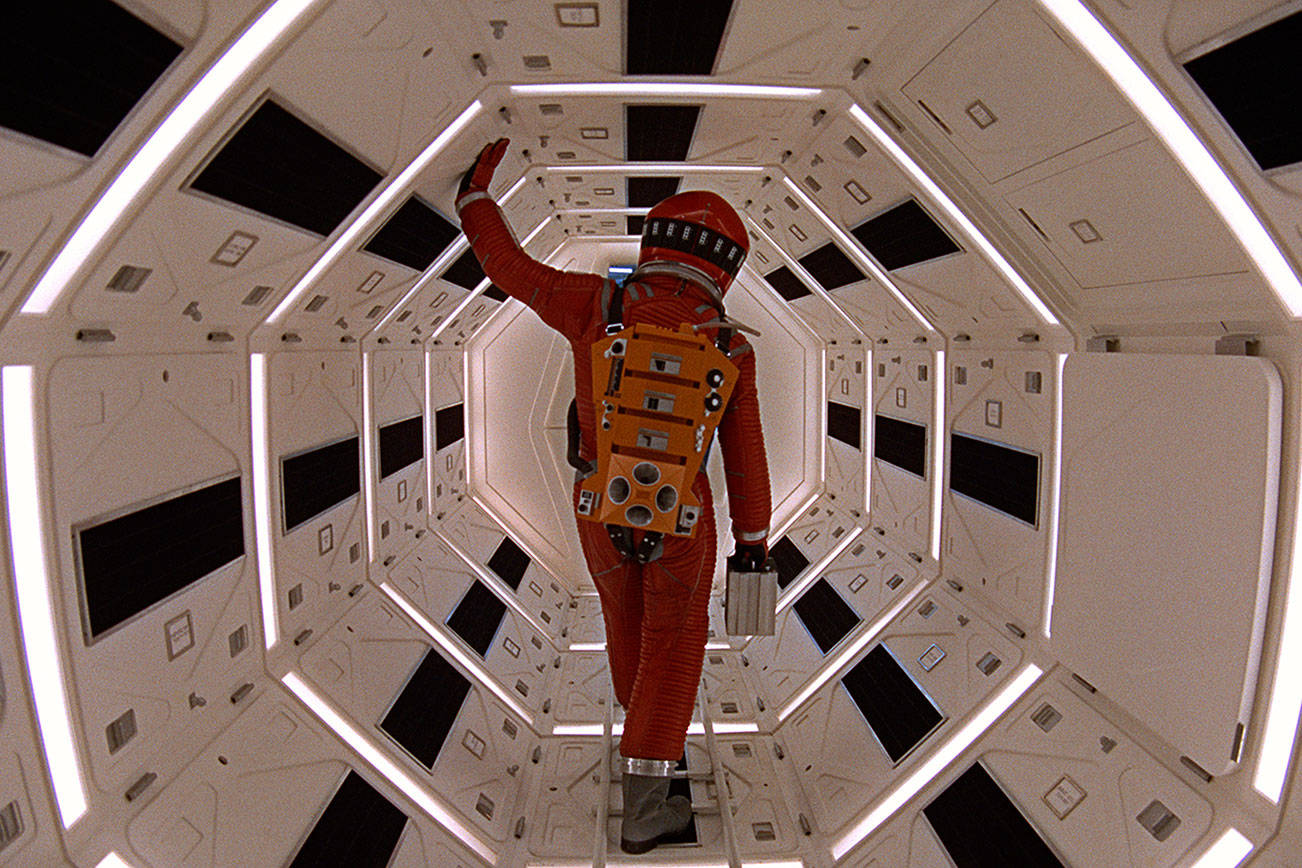The greatest movie mind-blower of them all turns 50 this year—a wildly imaginative, influential, psychedelic riddle.
But I know what you’re thinking: What about its algorithms?
I checked Rotten Tomatoes, and 2001: A Space Odyssey sits with an 89 percent audience score. From critics, it has a comfortable 92 percent “Fresh” rating. That’s a mere eight percentage points behind Paddington 2. Sweet.
But Stanley Kubrick’s sci-fi epic has been an official classic for decades. That tends to skew the vote. How would audiences rank 2001 on Rotten Tomatoes or IMDb if the film were unleashed as a new thing today? Even in 1968, critics argued over its slow pace, its violation of storytelling conventions, its baffling ending. Given the recent low audience scores for arty horror movies such as Hereditary and Annihilation, and the online tantrums thrown by Star Wars true believers who can’t abide variations on the formula (the faithful deliberately tanked online ratings for The Last Jedi and Solo), I wonder how the perversity of 2001 would go over now. The Internet-era urge to “solve” enigmatic movies might also work against Kubrick’s masterpiece. What’s the deal with that black slab? Who begins a movie with 20 minutes of monkeys? Why the giant baby?
2001 is getting extra attention during its half-centenary year, including a national rerelease of an “unrestored” 70 mm print this Friday. It’s a good opportunity to ask: Are we living up to this film’s legacy, when we reduce film culture to aggregate scores, weekly box office numbers, and tests of the filmmakers’ ideological purity?
2001 resists all that. Kubrick said he wanted to create a film that operated like a great piece of music; the movie would noodle its way into our subconscious, without a story getting in the way. Nobody asks what a symphony “means.” You can’t understand the lyrics to “Louie, Louie” or R.E.M.’s first album (Murmur), but they’re still sublime.
Maybe that’s why so many people (filmmakers especially) love this perplexing movie: It burrows into your brain. I’ve seen it on the giant screen at the Cinerama, but I’ve had equally exciting viewings on TV and in a grainy 16 mm print at the University of Washington. For that matter, the first time I “saw” 2001 was in Mad Magazine’s parody (“201 Minutes of a Space Idiocy,” in case you forgot), and I loved it that way, too. Like a monolith left outside for a thousand years, this film can withstand a lot.
Spinning off from an Arthur C. Clarke short story and zooming from prehistory to space travel in a single cut, Kubrick gave us a skeptical view of human evolution, or lack thereof. With the HAL 9000 computer, Kubrick and Clarke foresaw the dilemmas of artificial intelligence. The film’s depiction of bureaucratic blather and product placement in space remains highly amusing, and it still contains the greatest death scene in film history. As for the rest of it, well.… maybe 2001 encourages us to stop worrying about what a movie means, and instead think about what it means to us. Experiencing a great work of art—or, sometimes, a bad work of art—is a chance to open your mind and senses to something new, something that might console, inspire, or provide a fleeting glimpse of eternity. 2001 practically demands you try it. Fifty years on, it’s not too late to give it a shot.
2001: A Space Odyssey
Opens Friday, June 15 | Pacific Place | Rated G






